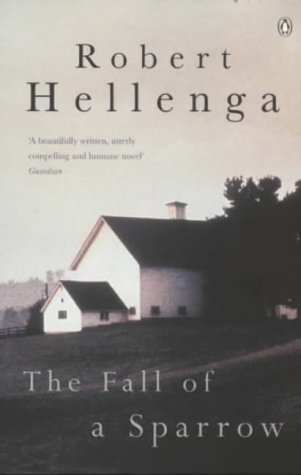
Synopsis
This beautifully crafted novel is the story of a family's struggle to heal itself after the violent death of its oldest daughter. But it is also full of humour, mischief and pleasure, rich with themes as diverse as politics, memory, chaos theory, justice and the proper way to cook spaghetti carbonara. "Hellenga has written one of those rare modern novels that's not afraid both to think and feel" - The Times "Like a fine wine, made to be sipped and appreciated" - Maxim "Eccentric, passionate and generous" - TLS
Les informations fournies dans la section « Synopsis » peuvent faire référence à une autre édition de ce titre.
À propos de l?auteur
Robert Hellenga is the author of THE SIXTEEN PLEASURES and a professor of English at Knox College in Galesburg, Illinois.
Les informations fournies dans la section « A propos du livre » peuvent faire référence à une autre édition de ce titre.
Autres éditions populaires du même titre
Résultats de recherche pour The Fall of a Sparrow
The Fall of a Sparrow
Vendeur : WorldofBooks, Goring-By-Sea, WS, Royaume-Uni
Paperback. Etat : Very Good. The book has been read, but is in excellent condition. Pages are intact and not marred by notes or highlighting. The spine remains undamaged. N° de réf. du vendeur GOR003776129
Acheter D'occasion
Quantité disponible : 1 disponible(s)
The Fall of a Sparrow
Vendeur : AwesomeBooks, Wallingford, Royaume-Uni
Etat : Very Good. This book is in very good condition and will be shipped within 24 hours of ordering. The cover may have some limited signs of wear but the pages are clean, intact and the spine remains undamaged. This book has clearly been well maintained and looked after thus far. Money back guarantee if you are not satisfied. See all our books here, order more than 1 book and get discounted shipping. . N° de réf. du vendeur 7719-9780140277043
Acheter D'occasion
Quantité disponible : 2 disponible(s)
The Fall of a Sparrow
Vendeur : Reuseabook, Gloucester, GLOS, Royaume-Uni
Paperback. Etat : Used; Good. Dispatched, from the UK, within 48 hours of ordering. This book is in good condition but will show signs of previous ownership. Please expect some creasing to the spine and/or minor damage to the cover. Aged book. Tanned pages and age spots, however, this will not interfere with reading. Grubby book may have mild dirt or some staining, mostly on the edges of pages. N° de réf. du vendeur CHL10379277
Acheter D'occasion
Quantité disponible : 1 disponible(s)
The Fall of a Sparrow
Vendeur : Reuseabook, Gloucester, GLOS, Royaume-Uni
Paperback. Etat : Used; Very Good. Dispatched, from the UK, within 48 hours of ordering. Though second-hand, the book is still in very good shape. Minimal signs of usage may include very minor creasing on the cover or on the spine. N° de réf. du vendeur CHL1520761
Acheter D'occasion
Quantité disponible : 1 disponible(s)
The Fall of a Sparrow
Vendeur : Bahamut Media, Reading, Royaume-Uni
Etat : Very Good. Shipped within 24 hours from our UK warehouse. Clean, undamaged book with no damage to pages and minimal wear to the cover. Spine still tight, in very good condition. Remember if you are not happy, you are covered by our 100% money back guarantee. N° de réf. du vendeur 6545-9780140277043
Acheter D'occasion
Quantité disponible : 2 disponible(s)
The Fall of a Sparrow
Vendeur : Better World Books Ltd, Dunfermline, Royaume-Uni
Etat : Very Good. Ships from the UK. Former library book; may include library markings. Used book that is in excellent condition. May show signs of wear or have minor defects. N° de réf. du vendeur 52098899-20
Acheter D'occasion
Quantité disponible : 1 disponible(s)
The Fall of a Sparrow
Vendeur : vladimir belskiy, Alexandria, VA, Etats-Unis
Etat : New. N° de réf. du vendeur U3-5RWC-LK7L
Acheter neuf
Quantité disponible : 1 disponible(s)

